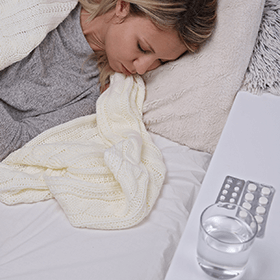By Dr Tom Micklewright
Over the Counter: UTI Treatment
What is a UTI? Am I at risk of contracting one?
Urinary tract infections (UTIs) occur when bacteria enters the urinary tract and causes an infection, resulting in one of three main types of infection infections of the bladder (cystitis), urethra (urethritis) or in the kidneys (pyelonephritis).
As for who is most at risk of contracting one in truth, anyone can contract a UTI at any time. UTIs are particularly common in women, with many women experiencing multiple UTIs in their lifetimes. This is not to say that men are immune, however urethritis is more common in men than women, for instance.
The following factors put you more at risk of contracting a UTI than most:
- Pregnancy
- Old age
- Being menopausal
- Being sexually active or having a new sexual partner
- Being born with an abnormal urinary tract
- The use of some birth control methods like a contraceptive diaphragm or spermicidal agent
- Having a condition that blocks the urinary tract (e.g. kidney stones)
- Having a condition that makes it difficult to fully empty the bladder (e.g. an enlarged prostate)
- Having a urinary catheter in place, or having had one in place recently
- Having a weakened immune system (e.g. from type-2 diabetes, chemotherapy or HIV)
- Having had a UTI previously
UTI treatment over the counter
UTIs are typically treated with prescribed courses of antibiotics lasting up to 7 days, but averaging at 1-3 for uncomplicated UTIs. Seeing a doctor and going down this avenue of treatment is our recommendation if you suspect that you may have contracted a UTI.
When it comes to urinary tract infection treatment over the counter, however, there are some (albeit not many) options available to you:
- Paracetamol. Nearly always available as an over the counter treatment option, paracetamol can alleviate the pain associated with UTIs though read the packaging carefully to make sure it will help with your specific symptoms.
- Ibuprofen. Any form of UTI will produce inflammation, and reducing inflammation is where ibuprofen comes into its own, thanks to its anti-inflammatory and analgesic properties. By reducing inflammation, you should experience less pain or discomfort, and the urgency or frequency of urination will be reduced too.
- Heat pads or hot water bottles. Make sure that they are warm, but not hot, and then place on your stomach, back or between your thighs. The warm sensation minimises the pressure or discomfort that results from UTIs.
- Hydration. Drink plenty of water, decaffeinated or sugar-free beverages, aiming for 6-8 standard glasses each day.
UTI treatment to avoid
There are plenty of additional home remedies mentioned by blogs, but none that we would recommend.
- Cranberry juice. Drinking cranberry juice is a common piece of advice associated with UTIs, though the effect of cranberry juice on treating or preventing urinary tract infections is very small.
- Baking soda. The theory behind this was to change the acidity in the urinary tract and discourage bacteria from spreading but there is no evidence to suggest that this actually works in practice.
- Apple cider vinegar. Recommended as a home remedy for the exact same reason baking soda often is, however using apple cider vinegar can actually make a UTI worse. Avoid at all costs.

